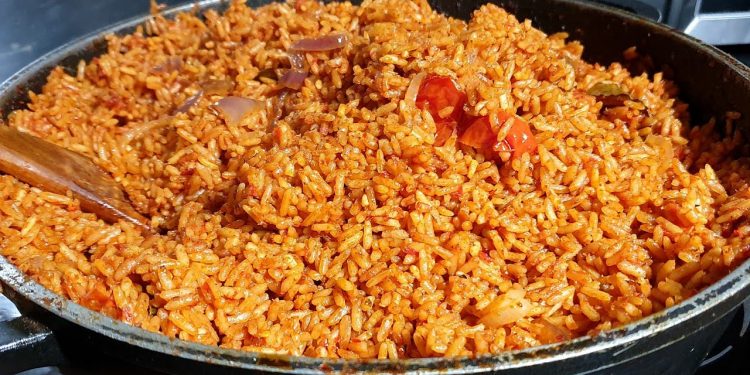By Emmanuel Nduka
A geopolitical research firm, SBM Intel, has revealed that at least 40 percent of Nigerians living below poverty line, reduced the number of meals and food quality they consume in the second quarter (Q2) of 2021 due to rise in food prices.
The statistics was contained in SBM’s latest report themed “Jollof Index Q2 2021: Food Prices Enter Geostationary Orbit”, which covered major food items used in making a pot of jollof rice.
The items considered included rice, curry, thyme, seasoning cube, groundnut/vegetable oil, turkey/chicken, beef, other seasoning, pepper, tomatoes, salt and onions.
Although inflation has declined in recent months, from 22.95 percent to 22.72 percent in April and then to 22.28 percent in May, the prices of food items continue to surge across the country.
According to the firm, the increase is due to pastoral conflict, lack of proper storage facilities, volatile oil prices, climate change, rising cost of energy and logistics, stifling government policies, natural disasters, COVID-19 pandemic, and currency devaluation.
The SBM said these factors have now led to stagnant earnings, dwindling productivity, rising insecurity, and a growing concern about food shortages.
While revealing that the average price of cooking Jollof across Nigeria increased by nearly 100 percent between July 2016 and June 2021, the statistic also shows that the average cost of cooking a pot of jollof rice for the average Nigerian family which stood at N7,124 in March, has increased by 6.93 percent in a space of three months to N7,618 in June.
“The increased food prices coupled with a high unemployment rate speaks of the growing misery index of Nigerians and declining ability to purchase food.
“This begs the question, how do 40.1% Nigerians who were already below the poverty line before the Pandemic purchase food considering the exacerbating effect of the Coronavirus?
“This group of Nigerians, who live below the poverty line, have reduced their number of meals and food quality,” it added.
The firm noted that most of the 40.1 percent Nigerians could no longer afford three square meals a day, as they have now resorted to one whole meal daily, coupled with snacks. It also said other major household food items surged significantly such as garri, egusi, beans, and palm oil, egg, plantain, yam, fish, pepper, and bread.
Thus, the SBM advised the Federal Government to reverse unnecessary fixation on domestic food production, and rather prioritise the availability of cheap food, both locally produced and imported, and providing the support everyone needs to produce or bring in food.
It also asked the government to remove the politicising of security and deal with it across Nigeria, especially in food producing areas of the country.




































